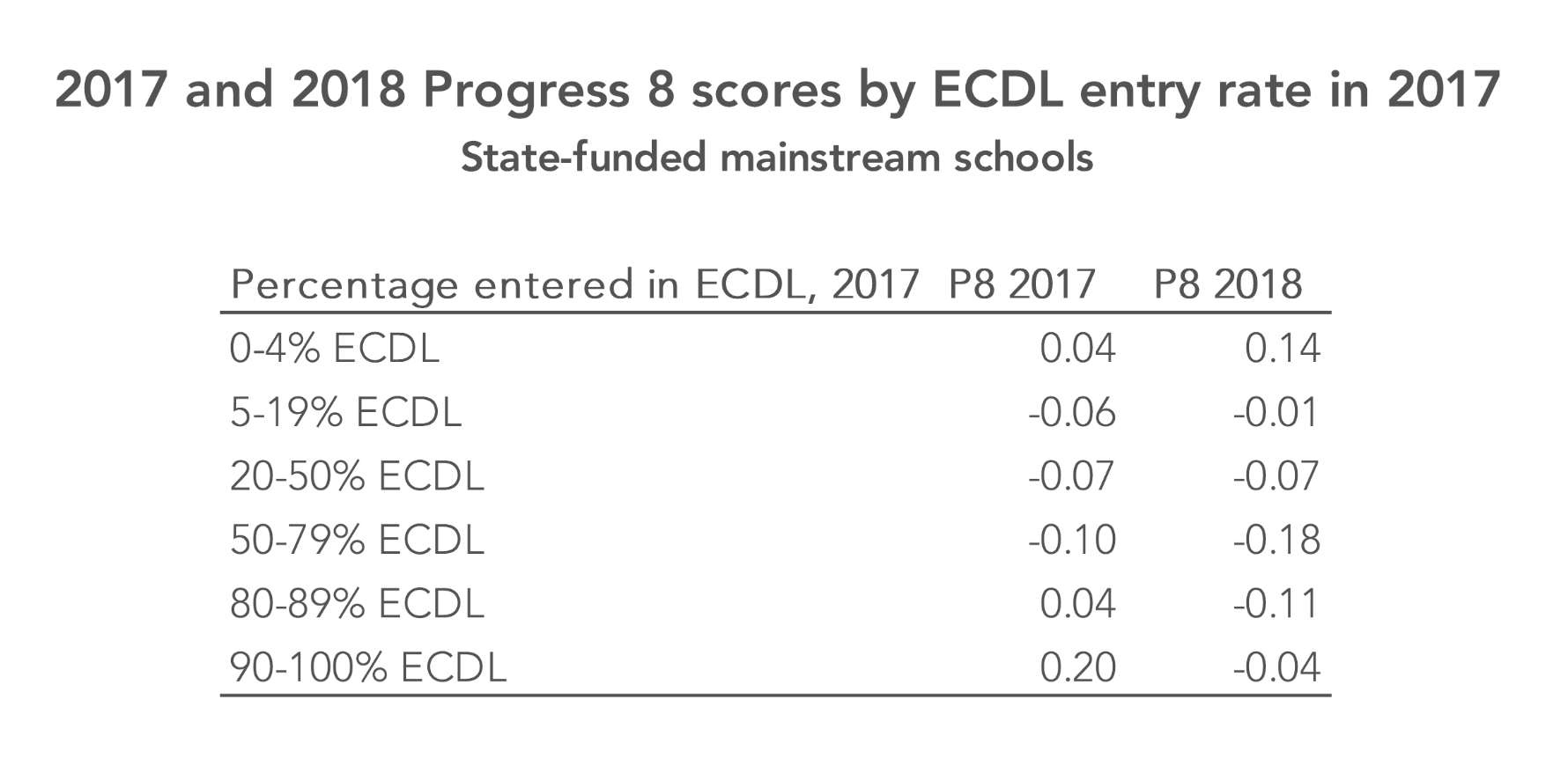Schools that entered large numbers of their pupils for the English computer driving licence have seen their progress scores slump this year after the controversial qualification was removed from national league tables.
The average progress 8 score among schools which entered between 90 and 100 per cent of their pupils for the ECDL in 2017 was -0.04 this year, compared with 0.20 last year, research by Education Datalab has found.
Those which entered between 80 and 89 per cent for the qualification last year saw their average score drop from 0.04 to -0.11.
The government announced last year that the BCS Level 2 ECDL Certificate in IT Application Skills would be dropped from a list of those which count towards league table scores from this year. It followed investigations by Schools Week which revealed how the ‘fast-track’ qualification which some schools were said to be teaching in just three days.
Earlier this year, it was revealed that the company behind the ECDL lost £3 million in income after the government scrapped the qualification from performance tables. Company accounts for the British Computer Society Learning and Development, which delivers the level 2 qualification, reveal a 10 per cent drop in income during 2016-17, from £29 million to £26 million last year.

Datalab’s research shows that schools which previously entered between 50 and 79 per cent of their pupils for the ECDL also saw their progress 8 score decline on average, from -0.10 in 2017 to -0.18 this year.
However, schools which used to enter lower proportions of pupils actually saw their progress 8 scores stay the same or increase this year.
The average progress score of those schools that previously entered between 20 and 50 per cent of pupils for the ECDL remained stable at -0.07, while those which entered between 5 and 19 per cent saw their score increase from -0.06 to -0.01. The score of schools which only previously entered between 0 and 4 per cent of pupils for the ECDL also increased, from 0.04 to 0.14.
Datalab also found that efforts by the government to “cap” the impact that “extremely negative” pupil-level progress 8 scores can have on a school’s overall score makes “very little practical difference” to “the vast majority of schools”.
“The results are fairly underwhelming,” wrote Dave Thomson, Datalab’s chief statistician, in a blog.
“Fewer than 5000 pupils in more than 2000 schools had their scores capped. Just nine schools saw their provisional published P8 measure change by more than 0.1. These were all small schools (fewer than 100 Year 11 pupils included in the measure) and all bar one remained below the floor standard of -0.5. Three were UTCs and three were studio schools.
“Another 50 schools saw their score change by 0.05 or more. So capping makes little difference.”








Your thoughts